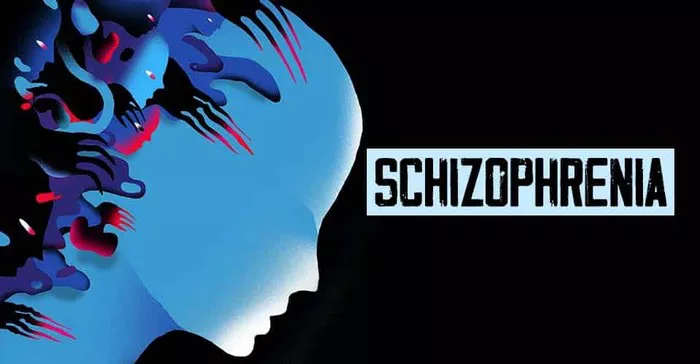Schizophrenia and Obsessive-Compulsive Disorder (OCD) are two distinct mental health conditions that can significantly impact an individual’s thoughts, emotions, and behaviors. While they share some similarities, such as the presence of intrusive thoughts or beliefs, they are characterized by distinct symptom profiles, underlying neurobiology, and treatment approaches. In this comprehensive article, we delve into the nature of schizophrenia and OCD, exploring their symptoms, causes, diagnosis, and treatment options.
Schizophrenia: Unraveling the Complexity
Schizophrenia is a chronic and severe mental disorder characterized by disturbances in thinking, perception, emotions, and behavior. It affects approximately 1% of the population worldwide and typically emerges in late adolescence or early adulthood. Schizophrenia is a heterogeneous condition, meaning that symptoms can vary widely among individuals. Common symptoms of schizophrenia include:
Positive Symptoms
Hallucinations: Perceiving things that are not present, such as hearing voices or seeing visions.
Delusions: Fixed, false beliefs that are not based in reality, such as believing that one is being persecuted or controlled by external forces.
Disorganized Thinking: Impaired ability to think logically, form coherent thoughts, or communicate effectively.
Disorganized Behavior: Erratic or unpredictable behaviors, including agitation, catatonia, or inappropriate social responses.
Negative Symptoms
Flat Affect: Reduced emotional expression or lack of emotional responsiveness.
Social Withdrawal: Avoidance of social interactions, isolation, or difficulty forming relationships.
Anhedonia: Decreased ability to experience pleasure or enjoyment in activities that were previously enjoyable.
Alogia: Poverty of speech or reduced verbal communication.
Cognitive Symptoms
Impaired Memory: Difficulty remembering information or recalling past events.
Poor Concentration: Inability to focus or sustain attention on tasks.
Executive Dysfunction: Impaired ability to plan, organize, problem-solve, or make decisions.
OCD: The Intrusive Cycle of Obsessions and Compulsions
Obsessive-Compulsive Disorder (OCD) is a chronic mental health condition characterized by the presence of obsessions and compulsions that significantly interfere with daily functioning and quality of life. OCD affects approximately 1-2% of the population and typically manifests in childhood, adolescence, or early adulthood. The hallmark features of OCD include:
Obsessions
Intrusive Thoughts: Persistent, unwanted, and distressing thoughts, images, or urges that repeatedly intrude into consciousness.
Fear of Contamination: Excessive fears of germs, dirt, or environmental contaminants, leading to compulsive cleaning or avoidance behaviors.
Symmetry and Orderliness: Preoccupation with symmetry, exactness, or order, accompanied by rituals or compulsions to arrange or organize objects in a specific way.
Forbidden or Taboo Thoughts: Disturbing or taboo thoughts that go against personal or moral values, leading to intense guilt, shame, or anxiety.
Compulsions
Repetitive Behaviors: Ritualized behaviors or mental acts performed in response to obsessions, aimed at reducing distress or preventing perceived harm.
Checking: Repeatedly checking locks, appliances, or personal belongings to ensure safety or prevent harm.
Counting: Counting or repeating numbers, words, or phrases in a specific sequence or pattern.
Cleaning and Washing: Excessive hand washing, showering, or cleaning rituals to alleviate fears of contamination.
Ordering and Arranging: Compulsive arranging, organizing, or aligning objects to achieve a sense of symmetry or completeness.
Distinguishing Features of Schizophrenia and OCD
While schizophrenia and OCD can share some overlapping symptoms, such as intrusive thoughts or perceptual disturbances, they are characterized by distinct features and diagnostic criteria:
Schizophrenia
Primary Features: Hallucinations, delusions, disorganized thinking, and impaired social and occupational functioning.
Duration and Course: Schizophrenia is a chronic and severe mental disorder characterized by persistent symptoms that significantly impact daily life. It typically follows a relapsing-remitting course, with periods of acute symptom exacerbation interspersed with periods of partial or complete remission.
Neurobiological Underpinnings: Schizophrenia is associated with alterations in brain structure and function, including abnormalities in neurotransmitter systems such as dopamine, glutamate, and serotonin. Genetic factors, prenatal and perinatal complications, and environmental stressors may also contribute to the development of schizophrenia.
OCD
Primary Features: Obsessions and compulsions that cause significant distress, interfere with daily activities, and consume a significant amount of time and energy.
Duration and Course: OCD is a chronic and often lifelong condition characterized by persistent symptoms that fluctuate in severity over time. Symptoms may wax and wane, but the underlying obsessions and compulsions typically persist.
Neurobiological Underpinnings: OCD is associated with dysregulation of the brain’s serotonin system and dysfunction in cortico-striatal-thalamic-cortical (CSTC) circuits involved in cognitive and emotional processing. Genetic factors, early life experiences, and environmental stressors may also contribute to the development of OCD.
Diagnosis and Treatment
Accurate diagnosis and appropriate treatment are essential for individuals with schizophrenia or OCD to manage their symptoms and improve their quality of life:
Diagnosis
Clinical Evaluation: Diagnosis of schizophrenia or OCD is based on a comprehensive clinical evaluation, including a thorough assessment of symptoms, medical history, and psychosocial factors. Diagnostic criteria outlined in the Diagnostic and Statistical Manual of Mental Disorders (DSM-5) are used to guide the diagnostic process.
Differential Diagnosis: Distinguishing between schizophrenia and OCD can be challenging due to overlapping symptoms and comorbid conditions. A thorough differential diagnosis is necessary to rule out other mental health disorders and medical conditions that may mimic or co-occur with schizophrenia or OCD.
Treatment
Medication: Antipsychotic medications are the primary treatment for schizophrenia and are effective in reducing positive symptoms such as hallucinations and delusions. For OCD, selective serotonin reuptake inhibitors (SSRIs) or other antidepressant medications are often prescribed to alleviate symptoms. Cognitive-behavioral therapy (CBT) and exposure and response prevention (ERP) are effective psychotherapeutic approaches for OCD.
Psychosocial Interventions: Psychosocial interventions, including individual therapy, family therapy, and supportive services, play a crucial role in managing symptoms, improving functioning, and promoting recovery for individuals with schizophrenia or OCD.
Hospitalization: In severe cases or during acute symptom exacerbations, hospitalization may be necessary to ensure safety, stabilize symptoms, and provide intensive treatment and support.
Conclusion: Navigating the Complexity of Mental Health
Schizophrenia and OCD are complex mental health conditions characterized by distinct symptom profiles, underlying neurobiology, and treatment approaches. While they can share some similarities, such as the presence of intrusive thoughts or beliefs, they require different diagnostic considerations and treatment strategies. By understanding the nature of schizophrenia and OCD and recognizing the unique challenges faced by individuals with these conditions, healthcare professionals can provide more effective care and support to those in need. Early intervention, comprehensive assessment, and individualized treatment planning are essential for promoting recovery and improving outcomes for individuals living with schizophrenia or OCD.
[inline_related_posts title=”You Might Be Interested In” title_align=”left” style=”list” number=”6″ align=”none” ids=”7719,7716,7698″ by=”categories” orderby=”rand” order=”DESC” hide_thumb=”no” thumb_right=”no” views=”no” date=”yes” grid_columns=”2″ post_type=”” tax=””]

































